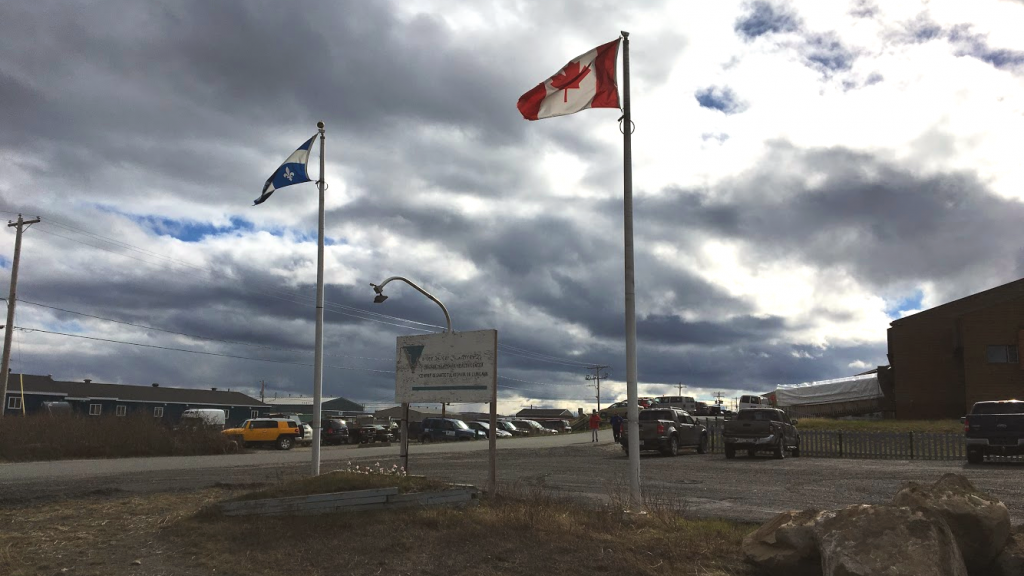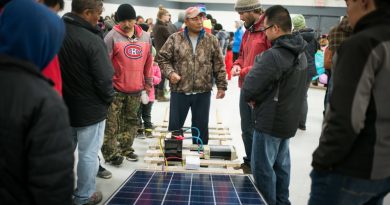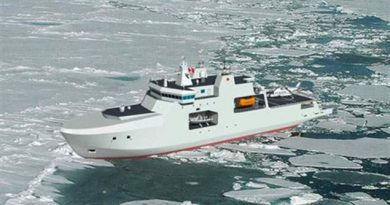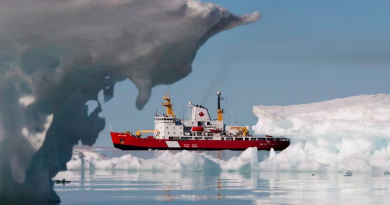Canada’s PM OKs use of local reserve forces in Arctic Quebec during COVID-19 pandemic

Canada’s Prime Minister Justin Trudeau accepted Quebec’s request on Friday to use the Canadian Rangers, local reserve forces, to assist with the COVID-19 response in their communities in the northern part of the province.
The provincial request was made on behalf of the Nunavik Regional Emergency Preparedness Advisory Committee, a group put together to head COVID-19 response in Nunavik, the Inuit region of the northern part of the province.
The committee is made up of the Kativik Regional Government, which administers Nunavik, along with the Kativik Regional Police Force and the Nunavik Regional Board of Health and Social Services.
The committee made the request after a second confirmed case of COVID-19 was reported in Nunavik on Wednesday.
‘Rangers already part of the community’
The Canadian Rangers are part of the Canadian Armed Forces Reserve. They are present throughout Canada’s North and in other isolated and sparsely populated regions of the country that are too remote for other components of the Canadian Armed Forces to cover.
The Rangers are made up of volunteers from their communities and are responsible mostly for surveillance, search and rescue, and providing local expertise and knowledge of their remote regions to support CAF operations or training.
“The advantage is that the Rangers are already here, in their communities,” Josée Levesque, a communications officer at the Nunavik regional health board told Eye on the Arctic, about why the support request was made.
(Trudeau’s announcement earlier in the day that he’d authorized the use of the army, as per Quebec’s request, to help with the COVID-19 response in the northern part of the province caused confusion across Canada, with several media outlets reporting that the Canadian army was being deployed to Nunavik.)
Triage and testing tents to be set up within days
Nunavik has a population of 13,000 people. There are 14 communities in the region and are fly-in only. Two of the communities, Kuujjuaq and Puvirnituq have small hospitals, but the rest of the communities are served by small nursing stations.
The request for the Rangers was made so two tents could be set up in front of the health facilities in each Nunavik community, one where people who have symptoms consistent with COVID-19 could be triaged, and another tent where people would be sent to be tested.
“Health care workers will not move between the two tents, and this set up will also separate potential COVID-19 cases from other patients at the (health centres),” Levesque said.
Levesque said work on the new set up would start as quickly as possible within a few days.
The Nunavik Regional Emergency Preparedness Advisory Committee is currently still negotiating on the potential use of the Canadian Armed Forces in the longterm should the coronavirus situation worsen, and increasing amounts of medical supplies or equipment was needed in the region.
Passenger flights cancelled
Also on Friday, passenger flights in and out of Nunavik and between its 14 communities, were cancelled indefinitely in an effort to contain the spread of COVID-19 in the region.
“This decision was not taken lightly,” said Marie Rochette, director at the Nunavik Regional Board of Health and Social Services, in a news release on Thursday. “We strongly believe it is the best way to reduce the risk of community transmission. Collectively, we have to work together to protect elders and the more vulnerable members of all the communities.”
The only air transport still allowed will be cargo flights, flights transporting patients to medical appointments, or flights transporting essential workers like health care professionals or police.
Of the region’s two confirmed COVID-19 cases, one is in the Hudson Bay community of Puvirnituq and the other in the Hudson Strait community of Salluit.
Write to Eilís Quinn at eilis.quinn(at)cbc.ca
Related stories from around the North:
Arctic: Roundup of COVID-19 responses around the Arctic, Eye on the Arctic
Canada: Inuit gov in Atlantic Canada postpones election over COVID-19 concerns, Eye on the Arctic
Finland: Finns continue with ski holiday plans despite travel advisory, Yle News
Greenland: COVID-19: Arctic science expedition postpones flight campaign after trainee tests positive for virus, Eye on the Arctic
Norway: Norway to focus on civil society, press freedom as chair of Barents Euro-Arctic Council, The Independent Barents Observer
Russia: Arctic oil plans in Norway and Russia disrupted amid COVID-19 crisis, The Independent Barents Observer
Sweden: Why are Sweden’s politicians taking a different tack for coronavirus?, Radio Sweden



